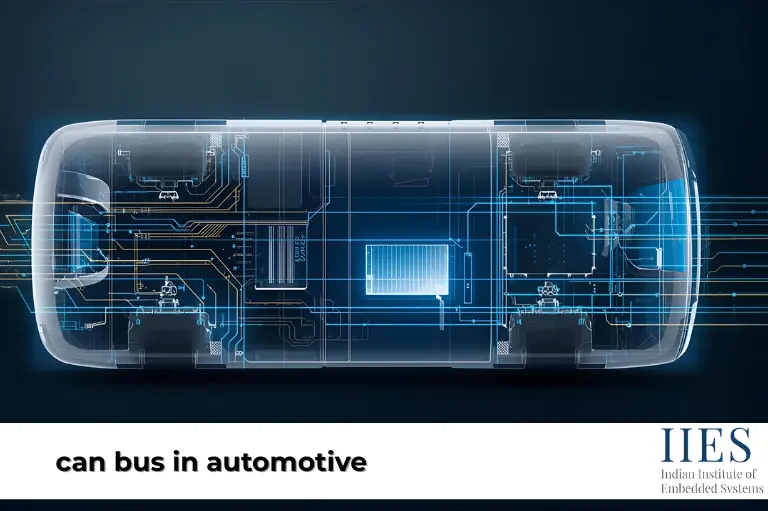What Makes STM32 Special in Automotive Applications
STM32 microcontrollers (MCUs) are 32-bit chips built on ARM Cortex-M cores. They are designed to handle demanding automotive tasks like sensor data processing, real-time control, and secure communication. Their popularity in the automotive world comes from three key strengths:
- High performance: Capable of managing complex tasks like ADAS sensor fusion or precise engine control.
- Low power usage: Efficient enough to reduce energy needs in electric and hybrid cars.
- Automotive safety compliance: Selected STM32 families meet ISO 26262 standards, supporting Automotive Safety Integrity Levels (ASIL).

STM32 MCU Families Used in Cars
- STM32F7 and STM32H7: Known for high performance, ideal for real-time automotive tasks.
- STM32L series: Focused on ultra-low power, commonly used in energy-sensitive systems like EV battery management.
- STM32G4 and STM32H5: Designed with advanced safety and security features for next-gen automotive designs.
The Role of CAN Bus in Vehicles
The CAN Bus system acts like a central nervous system in modern cars. It connects different control units and ensures smooth, real-time communication between them.
What is CAN Bus?
The Controller Area Network (CAN Bus) is a robust communication protocol created for vehicles. Instead of complex wiring between every electronic control unit (ECU), CAN Bus protocol allows all ECUs to “talk” to each other over a shared network.
Why CAN Bus is Essential
- Real-time communication: Fast and reliable messaging between ECUs.
- Fault tolerance: Detects errors, retransmits data, and ensures system reliability.
- Cost-effective: Simplifies wiring using a twisted pair cable.
- Scalable: Can handle communication across dozens of ECUs without slowing down.
STM32 and CAN Bus Integration
STM32 MCUs come with built-in CAN controllers that support both CAN 2.0 and CAN FD (Flexible Data-rate). This makes them perfect for automotive networks that require faster data transfer.
- Dual CAN interfaces in some STM32 families (e.g., STM32F7) for multiple ECU communication.
- Hardware message filtering (STM32 CAN filter configuration) to reduce CPU workload.
- CAN Bus termination resistor support for stable signal integrity.
- CAN FD support for sending larger payloads in fewer frames.
Safety Features of STM32 in Automotive Systems
Safety is non-negotiable in automotive design. STM32 microcontrollers are equipped with multiple hardware and software features to meet strict safety requirements under ISO 26262.
Automotive Safety Integrity Levels (ASIL)
- ASIL A: Basic systems with low risk.
- ASIL D: The highest level, required for critical functions like brake-by-wire and steering systems. STM32 MCUs can support designs across all ASIL levels, up to ASIL D.

Built-in STM32 Safety Features
- Watchdog timers: Reset the system if software becomes unresponsive.
- ECC (Error Correction Code): Protects data in SRAM and Flash memory.
- Self-diagnostic tests: Continuous monitoring of system health.
- Redundancy support: Dual MCUs can monitor each other to ensure fail-safe operation.
- Certified safety packages: STM32 families come with manuals, diagnostic tools, and certifications for ISO 26262 compliance.
Automotive Applications of STM32
STM32 microcontrollers are used in almost every part of a vehicle. From engines and batteries to infotainment and ADAS, they support both basic and advanced automotive functions.
1. Powertrain and Engine Control
- Precise control of fuel injection, ignition timing, and air-fuel ratios.
- Real-time adjustment of transmission shift points and gear ratios.
2. Advanced Driver Assistance Systems (ADAS)
- Sensor fusion: Combines data from radar, LiDAR, cameras, and ultrasonic sensors.
- Driver safety features: Enables adaptive cruise control, lane keeping, and collision avoidance.
3. Infotainment and Connectivity
- Touchscreen control: Powers modern digital dashboards and infotainment systems.
- Audio and media: Handles audio processing, media integration, and wireless connectivity.
4. Electric Vehicle Systems
- Battery Management System (BMS): Balances cells, monitors charging, and ensures safety.
- Power distribution: Efficiently manages power flow across vehicle subsystems.
Why STM32 is a Reliable Choice for Automakers
Automakers prefer STM32 because of its proven stability and long-term support. Its scalability makes it suitable for everything from entry-level cars to advanced electric vehicles.
- Proven track record: Trusted by leading automakers worldwide.
- Scalability: Covers applications from entry-level ECUs to high-end ADAS.
- Long-term support: Backed by STMicroelectronics with extensive safety documentation.
- Ecosystem support: Strong developer tools, libraries, and automotive-grade components including isolated CAN transceiver and multiple CAN Bus connector types for robust design.

Conclusion
STM32 microcontrollers bring performance, safety, and scalability to modern cars. With CAN Bus communication support and ISO 26262-ready safety features, they power critical systems from engines and ADAS to EV batteries and infotainment. For automakers, STM32 is a future-proof and trusted choice for smart mobility.




